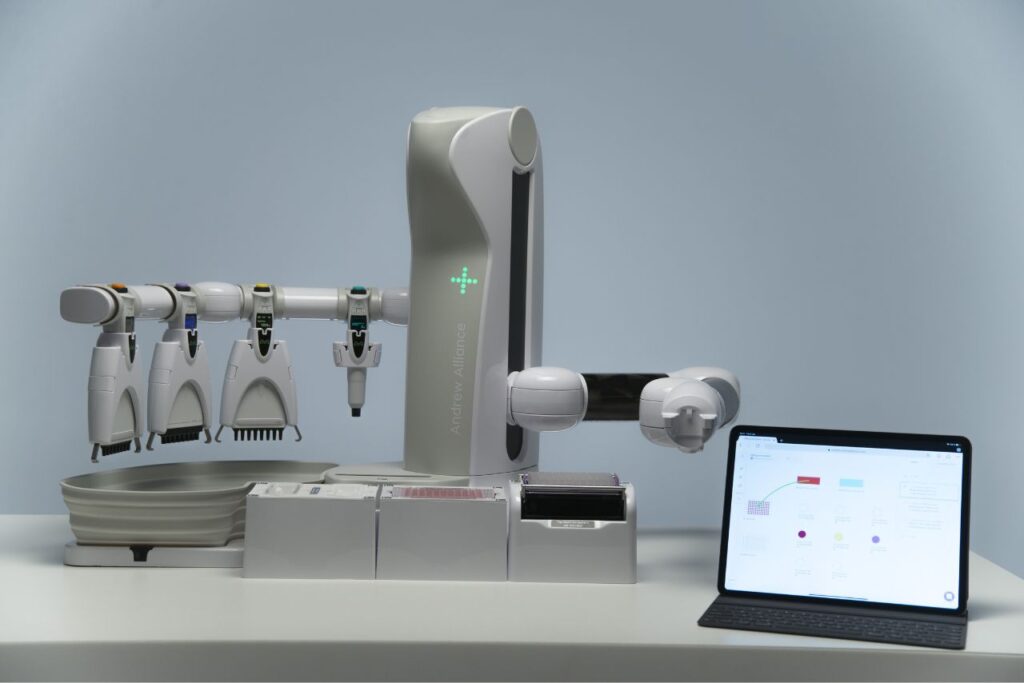Read Time: 5 min
Data Integrity and Compliance quick brief:
- Data integrity involves the consistency of data handling from beginning to end.
- Organizations need to implement clear procedures to deal with data compliance. Some measures would include, encryption, access controls, and regular backups.
- Compliance with regulatory standards (such as GDPR, HIPAA, and SOX) is critical to ensure that data handling practices meet industry standards.
The introduction of new technology within the scientific world also highlights the further need for regulations and compliance in dealing with people’s data. This has never been more true than within a laboratory environment.
This new technology has helped laboratories adapt to new practices to ensure data integrity and perform complex actions easily.
Why do we need data integrity within a laboratory environment?
Within a laboratory environment, there are large amounts of data being stored and shared at any given time. Ensuring you have a data-compliant organization is so important, especially within the research field.
Data integrity is a crucial part of laboratory operations. Ensuring that data in the lab is recorded accurately and is easily accessible can facilitate better data management and analysis. If data is not complete and reliable then it can call the accuracy of your data into question. This could lead to a detrimental impact especially if data is linked to patient safety.
It’s also important from an ethical and legal standpoint to ensure you have data integrity.
Here are the Top best data practices that we’ve identified to ensure you have a compliant and regulated organization:
Create Clear Standard Operating Procedures (SOP’s)
Develop strong laboratory processes, they should be clear, concise and easy to follow. Your procedures need to adhere to industry standards and be accessible to all staff.
Regular Updates: By capturing updates to your processes and procedures, all staff will be aware of any updates or new procedures etc.
Data Management Control
By streamlining data collecting, laboratories can minimise the risk of human error through the use of laboratory information management systems – LIMS.
Integration and Automation: The integration of automation within a lab environment reduces the manual aspects of data entry, and therefore minimizes research errors. The Andrew+ pipetting robot can be connected to a LIMs system through the OneLab Enterprise deployment option.
Security Procedures for Data Management
Data Management within a laboratory environment relies on having clear procedures in place to ensure security measures are being adhered to.
Best Practices: By having an elected member of staff as an on-site compliance officer, they could help to prepare for an on-site audit and implement best practices across your organization.
On-site Audits
Having clear audit trails helps to create a culture of integrity within a laboratory environment, you must also ensure that regular on-site audits take place. These audits will help to identify any compliance issues before they become serious problems.
External Audits: Having regular external audits conducted by a QP (Qualified Person) will highlight any operations, data management or equipment issues that need to be rectified. These third-party auditors will ensure that standards and regulations are met.
The OneLab software includes user management, audit trail and sample tracking as core features to support compliance.
Standard Operating Procedures
In any lab setting maintaining Standard Operating Procedures is one of the main ways to ensure data integrity. Creating clear documentation which explains how tasks should be regulated, developed and maintained is also important.
Reporting: Providing regular training on how data should be collected and reported on is also integral to any organisation that is dealing with scientific research projects. A priority should be made to ensure regulations associated to the research and data have also been maintained.
Contingency Planning
Implementing backup protocols will ensure that data loss will be prevented in the case of a system failure or disaster. By regularly backing up your data, you decrease the risk of data loss if a system failure does occur and by having these plans in place you will ensure your data is stored securely.
Recovery Plan: By having a recovery plan in place, you will mitigate any additional risk to data integrity in the instance of a security breach.
The OneLab software can be either cloud hosted or installed on site with expanded storage and backups.
Quality Control
Data integrity and quality control go hand-in hand within any organization, this is even more true within a laboratory environment. By incorporating quality control procedures, you can effectively monitor the management of your data.
Quality Programmes: By having a QC program within your organization, you can measure areas that are in need of improvement and in the instance of an audit, you will have clear documentation to present.
Data Management Policies – they need to be accessible.
Having a clear outline of your organizations policies and ensuring they are accessible is key. The policies should detail how to collect, store and process your data. It is also essential that you know when your data needs to be archived or deleted.
Roles and responsibilities: Having a member of staff or team to manage and update the data policies is also a good idea for any organization. This person/team would be responsible for maintaining the policies and rolling them out to other personnel.
Regulatory Changes
Being up-to-date on regulations within your organization is important, especially within a laboratory setting. You need to be clear on regulations that pertain to your organization, such as Good Laboratory Practice (GLP), ISO 17025, and 21 CFR Part 11. You need to be sure that your laboratory aligns with these regulations.
Workshops: Having on-site regular workshops with personnel to run through key regulatory updates is another way to stay current and ensure consistency within your organization.
OneLab includes compliant ready controls such as electronic records and electronic signatures compliant with regulations such as 21 CFR Part 11, ISO 17025 or EU Annex 11.
To find out more about data integrity and compliance with your laboratory, please visit Waters.com


